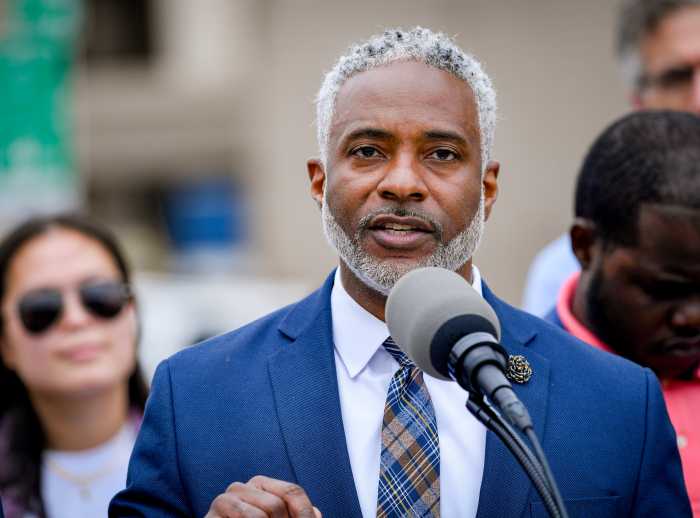The current high-pitched discussions about the M.T.A.’s proposed transit cuts are putting this much-criticized agency once again under a glaring spotlight. Struggling to address a nearly $800 million budget gap, the Metropolitan Transportation Authority is considering cutting essential service that city residents depend on, and also slashing free student MetroCards to half-fare, and later eliminating them.
First of all, it’s clear that service cuts slated for several key Downtown bus lines are simply untenable. Full service must be kept on such essential routes as the M8, M9, M20, M21 and M22. With the Second Ave. subway still a long way off, the Lower East Side, for one, lacks adequate subway infrastructure; so its bus service is critical to connect residents — including many who live in public housing along the East River and don’t have other transportation options — with major subway hubs, such as Union Square. Similarly, the M8 is a critical cross-town route on Eighth St., depended upon by young students and senior citizens alike.
One of the more cogent analyses of the M.T.A.’s seemingly unsolvable predicament — which is really the straphangers’ predicament — appeared in this newspaper several weeks ago. Francis Menton, an attorney and West Village resident, spelled out the authority’s twofold problem: a reliance on a dedicated tax from New York real estate sales, and pension plans that have gotten so bloated and unwieldy that past employees are literally draining the agency’s coffers. In a down economy as we’re experiencing now, real estate sales, and taxes from them, dry up, while pension plans require more payment into them as a result of a weakened stock market.
As Menton so effectively argued, our own local state assemblymembers and state senators have aided and abetted this guaranteed, no-win dynamic — primarily by blindly voting to approve M.T.A. pension plans that are bankrupting the future of our transit system. Our politicians must stop being so beholden to the unions — and start re-evaluating our transit system’s financial viability with a fresh and critical eye. Otherwise, this cycle of threatened service cuts, followed by desperate protests to save sorely needed bus and subway service, will just continue like clockwork, as Menton warns.
Our transit infrastructure’s being linked so perilously to the vicissitudes of the economy and the stock market is, simply put, a disastrous situation. A better answer must be found.
Mayor Mike Bloomberg had the right solution: congestion pricing. This system of regulating and tolling traffic entering Midtown and the southern half of Manhattan is really the only viable solution for our transit woes. A similar traffic tolling program exists in London, for example, and has shown its benefits: Automobile congestion in the city’s central core is reduced, while the tolling raises millions that can be funneled into the transit system. Tolling the East River bridges, another needed step, would have the same benefits.
Wealthier car drivers ought to be charged for the right to use our streets — often clogging them — and pollute our air. On the other hand, to cut transit service, hike fares and slash student MetroCards represents a regressive tax against average straphangers who can least afford it.
On another note, it was disturbing to read in the Daily News that about half of the M.T.A. board members “played hooky” from most of last week’s packed hearings on the proposed transit cuts, attending, on average, only two of eight hearings. Talk about out of touch and arrogant. Thankfully, most of these unsalaried board members’ perks have been yanked in recent years. Yes, we badly need congestion pricing and bridge tolls — but this dysfunctional agency needs an overhaul.


































